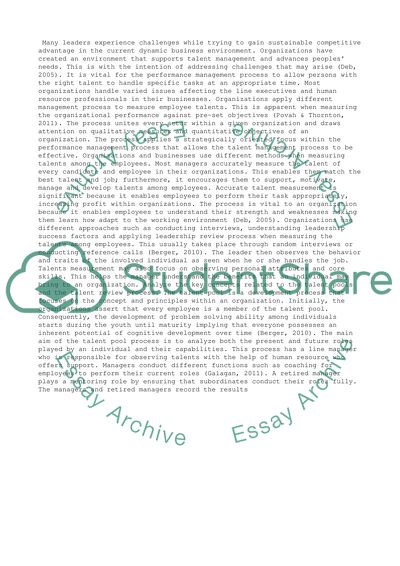Cite this document
(“Sustainable Talent Management Assignment Example | Topics and Well Written Essays - 1500 words”, n.d.)
Retrieved from https://studentshare.org/management/1456648-sustainable-talent-management
Retrieved from https://studentshare.org/management/1456648-sustainable-talent-management
(Sustainable Talent Management Assignment Example | Topics and Well Written Essays - 1500 Words)
https://studentshare.org/management/1456648-sustainable-talent-management.
https://studentshare.org/management/1456648-sustainable-talent-management.
“Sustainable Talent Management Assignment Example | Topics and Well Written Essays - 1500 Words”, n.d. https://studentshare.org/management/1456648-sustainable-talent-management.


